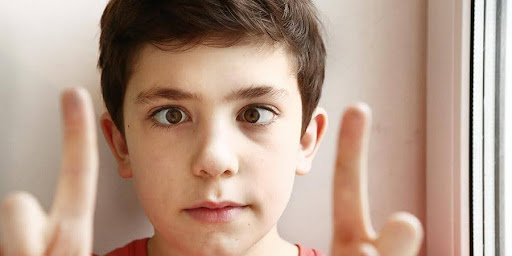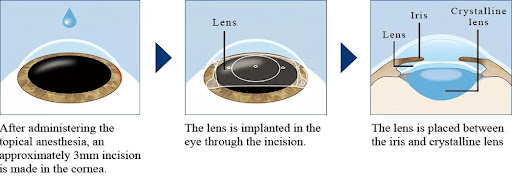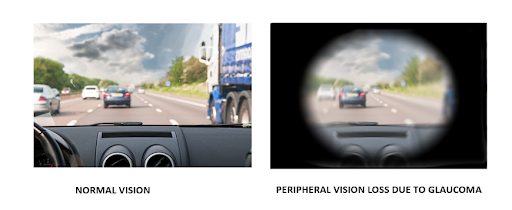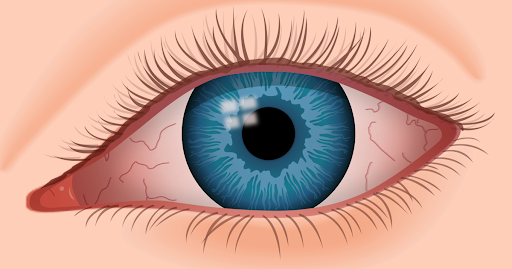Poor eye coordination—also known as eye-hand coordination or hand-eye coordination—refers to the ability of your eyes and hands to work together seamlessly. It involves synchronizing visual input from your eyes with the motor skills of your hands and body. When you have poor eye coordination, these two essential components do not function efficiently, leading to difficulties performing various tasks.
If you grapple with the challenges of poor eye coordination, there is a glimmer of hope. At Eyeonce Eye Clinic, we provide practical solutions to improve eye coordination with the help of our expert eye doctors, Paik Dong Won and Jung Sae Rom.
Causes and Risk Factors
Some of the associated causes and risk factors of poor eye coordination are the following:
Causes
- Genetics – One of the primary factors contributing to poor eye coordination can be genetics. If you have a family history of eye coordination difficulties, you may be at a higher risk of experiencing similar challenges. These genetic factors can influence the development and functioning of the visual-motor system.
- Developmental delays – Children who have experienced developmental delays may also struggle with eye coordination. These delays can affect the proper development of the visual and motor skills required for efficient hand-eye coordination.
- Visual impairments – Vision problems can significantly impact eye coordination. Conditions like astigmatism, amblyopia (lazy eye), or even significant nearsightedness can hinder the ability of your eyes to work together effectively. Eyeonce Eye Clinic offers comprehensive eye examinations and vision correction services, including eyeglasses and contact lenses, to address these visual impairments.
- Neurological conditions – Certain neurological conditions can interfere with the neural pathways that coordinate eye and hand movements. Conditions like cerebral palsy, multiple sclerosis, or traumatic brain injuries can affect the brain’s ability to process visual information and transmit muscle signals.
- Lifestyle factors – Sedentary lifestyles, excessive screen time, and inadequate nutrition can all contribute to eye coordination challenges.
- Medication side effects – In some cases, medications or medical treatments may have side effects that affect eye coordination.
- Environmental factors – Poor lighting conditions and prolonged screen time can strain the visual system and lead to eye coordination difficulties.
- Trauma or injury – Traumatic injuries to the head or eye can disrupt the intricate connections between the eyes and the brain, resulting in poor eye coordination.
The expert team at Eyeonce Eye Clinic understands the complexity of eye coordination issues and offers tailored assessments and treatments to help individuals overcome poor eye coordination.
Symptoms
Poor eye coordination can significantly impact our everyday tasks. Some of its symptoms such as the following:
- Difficulty in catching or throwing objects
- Challenges in handwriting and drawing
- Frequent clumsiness and tripping
- Difficulty in following moving objects
- Reading difficulties
- Eye strain and fatigue
- Inefficient sports performance
- Reduced confidence
If you or your loved ones are experiencing any of these symptoms, seeking professional help from Eyeonce Eye Clinic can be crucial to addressing eye coordination challenges and enjoying a more fulfilling and confident life.
Diagnosis and Treatment
Diagnosing poor eye coordination involves a comprehensive assessment by a qualified eye care professional. At Eyeonce Eye Clinic, the diagnostic process typically includes:
Diagnosis
- Visual examination – The first step is to assess visual acuity and identify any underlying vision problems, such as astigmatism or amblyopia.
- Eye movements – The eye care professional at Eyeonce will evaluate the range and quality of eye movements. It involves tracking moving objects, assessing eye convergence (the ability of the eyes to move together), and looking for nystagmus (involuntary eye movement).
- Visual-motor integration – Testing how well the eyes work with motor skills is essential. It includes activities like hand-eye coordination tasks and tracking objects while moving.
- Neurological evaluation – In cases where neurological conditions are suspected, a neurological evaluation may be necessary to assess the brain’s role in coordination difficulties.
- Patient history – Information about the patient’s medical history, family history, and lifestyle factors is crucial for a comprehensive diagnosis.
Treatment
Once diagnosed, several treatment options are available to address poor eye coordination, and Eyeonce Eye Clinic offers a range of specialized services to tailor treatment to individual needs.
- Vision therapy – It is a highly effective treatment for poor eye coordination. It involves a series of structured exercises and activities designed to improve eye movements, focusing, and coordination.
- Occupational therapy – It focuses on improving the ability to perform daily tasks. It is especially beneficial for children with coordination challenges.
- Lifestyle changes – Lifestyle adjustments play a vital role in improving eye coordination. Eyeonce Eye Clinic guides adopting a healthier lifestyle, which may include recommendations for regular physical activity, balanced nutrition, and reduced screen time.
- Eye exercises – They may include tracking moving objects, practicing focusing, and strengthening eye muscles.
- Visual aids – In some cases, visual aids like eyeglasses or contact lenses may be prescribed to correct underlying vision problems contributing to poor eye coordination.
Some other treatments available at Eyeonce Eye Clinic are neurological interventions, environmental modifications, and monitoring and follow-ups.
Why choose Eyeonce Eye Clinic Gangnam for poor eye coordination treatment?
Utmost Patient Care
Our eye care professionals and staff ensure to give you your money’s worth. We guarantee you receive the best medication possible and assure you that you are guided and understood, making you feel comfortable and confident at every step.
Comprehensive Consultation
Eyeonce Eye Clinic offers comprehensive eye examinations to evaluate your condition and determine the best poor eye coordination treatment. Our ophthalmologists take their time to cater to your questions and address your concerns, ensuring you make an informed decision about our vision correction options.
Expert Eye Doctors
Our ophthalmologists, Head Director Dr. Paik Dong Won and Medical Director Dr. Jung Sae Rom, are highly knowledgeable and adept in treating poor eye coordination. They always use the latest techniques and technologies to ensure optimal results.
Frequently Asked Questions (FAQs)
With dedication and the right interventions, adults can also improve their eye coordination.
Not necessarily. With suitable therapies and lifestyle changes, many individuals experience significant improvements in their eye coordination.
Poor eye coordination can impact reading and writing, potentially affecting academic performance. Early intervention is vital.
Conclusion
Poor eye coordination can be challenging, but it is not insurmountable. You can significantly improve your eye coordination by understanding the causes, recognizing the symptoms, and implementing effective strategies. If you want to learn more about the treatment options that best suit your needs, book an appointment at Eyeonce Eye Clinic to achieve better eye coordination and a more confident and fulfilling life.



